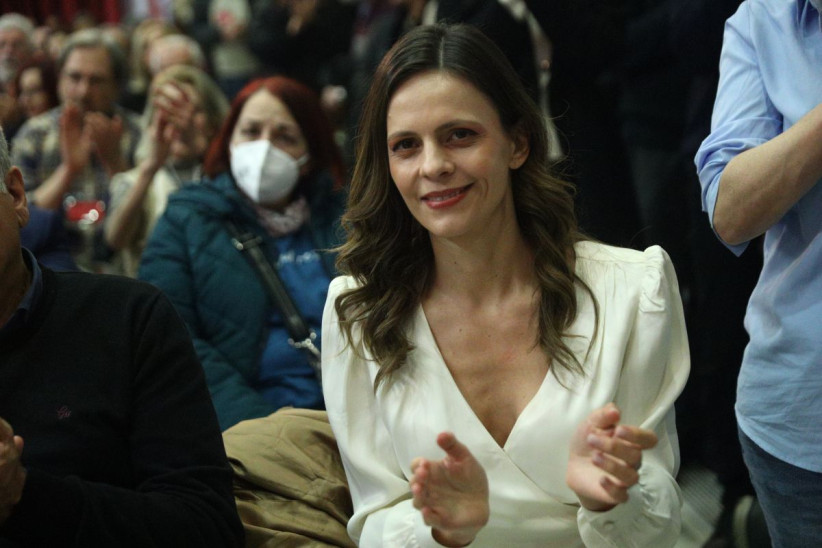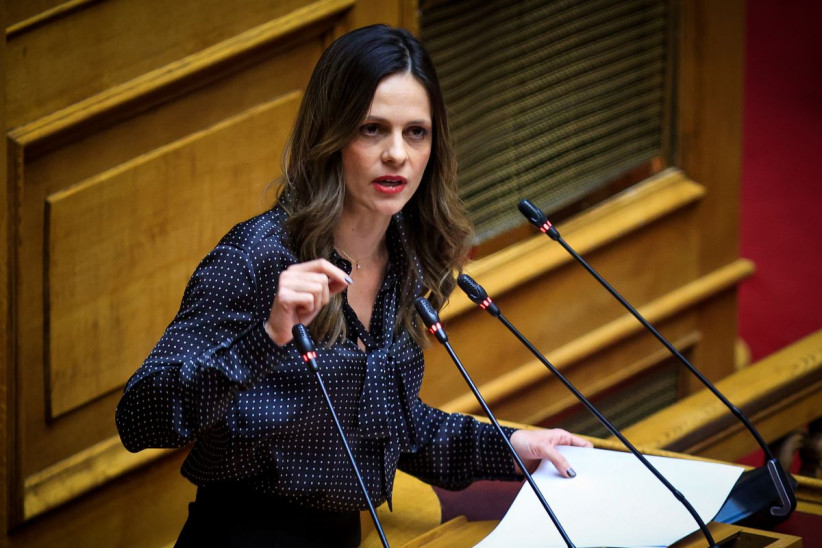Interview with Stefanos Nikolaidis
With consistent presence to forefront her politics and intense institutional knowledgethe Efi Achcioglou belongs to the generation that did not live the Transitionbut was called upon to evaluateto claimed and to transform. Former Minister of Labor and current parliamentary representative her Rearspeaks to the tribute of skai.gr with her look womanher new political and her left -wing voice that has been found in the government field and he knows up close so opportunities as well as the boundaries of our political system.
Comments on them institutional incisionsthe social inequalitiesbut also challenges that today is facing the younger generation to one constant crisis environment; questioning and reappearance of her own Democracy. With Reason clean, political and staffthe Efi Achcioglou she deposits her own contribution in public account of 50+1 year of the Transfiguration.
All the interview:
– What does ‘post -region’ mean to you personally?
The Transition is a historical intersection, the passage of the state of the winners of the civil war to a more democratic form of political and social organization. There has been a period of development of popular struggles and claims, a historical phase of conquests and continuous expansion of working class rights. The strengthening of the labor and student movement as well as their institutional registration have been together with the consolidation of parliamentaryism without the intervention of the palace and the operation of paragraphic institutions its main characteristics.
The Transition is ultimately a period of constant democratization under the pressure of popular struggles and expectations. And when I speak of democratization I not only mean the obvious level of stability of democracy, elections and non -questioning of their effect, but also a course from formal to essential equality through social conquests. And I think that are exactly the reasons why in the postwar period the economic and political elite sees an example to avoid. The Transition still scares some.
– What do you consider the most important institutional or social breakthrough of the period?
If we consider the Transition as the period of gradual overrun of the separation between the winners and the losers of the civil war, then the recognition of the National Resistance was an institutional intersection that sealed the Transition, if one takes into account its political and social essence, but also its historical and symbolic significance.
Not even this incision was consensual. I recall that the ND had disagreed, had denounced it, and had left the House about its own political expediency.
The historical justification of the National Resistance was a justification for the struggles of the people, not only of the struggle during the occupation but also of all the social and political struggles that followed for democracy, for justice, for individual freedoms, for labor rights.
– Do you think we have gone through a “post-metaphorical” era? If so, when and why?
In my opinion, the Transition, initially, as a passing from the junta to democracy, continued as a process of consolidating and improving democracy and its institutions, was accompanied by reforms that upgraded the standard of living of the citizens, proceeded through political and social conflicts and demands.
From the point of view of historical and from the point of view of political journalism I think we are now in another historical phase. Recession phase of the quality of democracy, the functioning of institutions and justice, social and labor rights, individual freedoms, the standard of living and the economic status of workers, the opening of the inequality gap.
So, I would say that the Transition and its demands, at the political and social level, continue to be key stakes and objects at present.
– In your opinion is the greatest risk for democracy today?
Two main risks: expanding inequalities and the tendency to depreciate citizens, and in particular young people for political action, trade union, for collective forms of social organization. And these are some of the reasons that lead to the reinforcement of the far right and authoritarian forms of political representation.
These two elements, coupled with a government -trained policy that directly violates the functioning of institutions and justice, which creates and conceals scandals such as OPECEPE and surveillance, which conceals the crime of Tempi with unimaginable parliamentary and institutional violations.
– If you were talking to a 17 -year -old voter today, what would you tell him that he was worth defending?
It is worth nothing else to defend his own life and the life of his fellow citizens. This means democracy and justice, it means claiming and conquering rights in his work, a quality social state and upgraded public and free health and education. But it also means alert to policies that broaden inequalities.
It is worth defending its generation against any mechanism that deprives it of free time and security, which deprives it of the ability to become autonomous and played in its own future.
Source: Skai
I have worked in the news industry for over 10 years. I have been an author at News Bulletin 247 for the past 2 years. I mostly cover politics news. I am a highly experienced and respected journalist. I have won numerous awards for my work.












